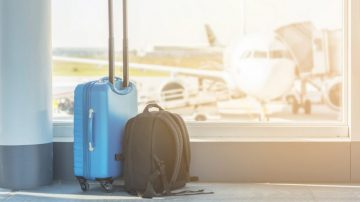
Let’s try to make something positive and tangible out of this pandemic, using the opportunity to improve sustainability in the travel industry…
I have two main wishes for the Covid-19-battered suppliers of the travel industry. The first is that demand bounces back to allow them to once again build up their businesses and preserve as many jobs as possible. The second is that those businesses are more sustainable than they were before the pandemic.
By sustainable, I mean both financially and environmentally. It has become clear that many organisations in the sector entered the pandemic with profit margins that made them vulnerable to a dramatic downturn. Still, it is environmental sustainability on which I have a few suggestions.
A lot has been said about the need for airlines and hotel companies to manage their environmental footprint better, but I think many aspects of their product offerings are ripe for redesign when we exit this global crisis. Many environmentally unsustainable activities by airlines and hotels have historically been justified by customer expectation. However, as travellers have reassessed their priorities, now is the time to seize the opportunity and change the way they do things.
FLYING LESSONS
Let’s start with the troubled airline industry. While much attention has been given to what happens “under the bonnet” in the operation of commercial aircraft, the spotlight has not been shone to the same extent on what happens in the terminal or in the cabin, where the watchword still seems to be “disposable”.
This hasn’t been helped by the hygiene requirements of the fight against Covid-19, but when this is all over it must be time to revise how airlines operate. From boarding passes to baggage tags and priority labels, the process of checking in for a flight is often riddled with waste, all of which could be avoided.
The last suitcase I checked in headed down the baggage belt festooned with tags denoting my final destination, the fragile nature of its contents and my cabin status. While I had chosen an electronic boarding pass, the terminal was awash with people brandishing bits of paper printed at home or spewed out of self-service kiosks throughout the terminal. The Business Traveller magazine waiting for you in the business class lounge remains a notable exception to the elimination of paper as it is multi-use and essential reading!
On board, the tale becomes even sorrier. In addition to the innate wastefulness of an in-flight meal and its packaging, there are also profligate on-the-day additions. The last time I purchased a coffee on a well-known low fares airline, I was given two packets of sugar, two non-dairy creamers and a plastic stirrer, all placed in a separate plastic cup. All of this is on top of printed card menus and the unsolicited napkin under every drink and with every bag of nuts.
I do confess to being a habitual amenity kit collector but surely it is time to put this habit to bed, too. The last time I left a business class cabin after a long-haul flight, I spotted eight open yet mostly unused washbags left behind on seats. Wouldn’t we be better having amenities delivered on request or selecting them from a suitably ornate basket?
ROOM FOR IMPROVEMENT
The hospitality sector has the same opportunity post-pandemic to mend its ways and adjust customer expectations. The days of printed hotel bills must surely be over. In a world of fully digital expense management, paperless checkout has to be the default. Even more so, hotel front desks should have the heavy-duty envelopes in which they insist on presenting the bill confiscated.
My shameless desire to hoard free kit also extends to hotel “unguents”, as my late mother used to refer to them. For those not familiar with this word, it refers to the various shampoos and lotions that hotels provide in little bottles for your in-room use or, in my case, to remove in industrial quantities and deposit in the bathroom at home, never to be used. Although I know I’m shooting myself in the foot here, it must be time that all hotels got rid of these in favour of dispensers bonded to the bathroom wall, to stop the likes of me removing them.
All of these suggestions may seem trivial but given that many millions of people will hopefully fly on aircraft and stay in hotel rooms across the globe in the year to come, it might just make a difference.
Richard Tams is an airline consultant and executive coach












